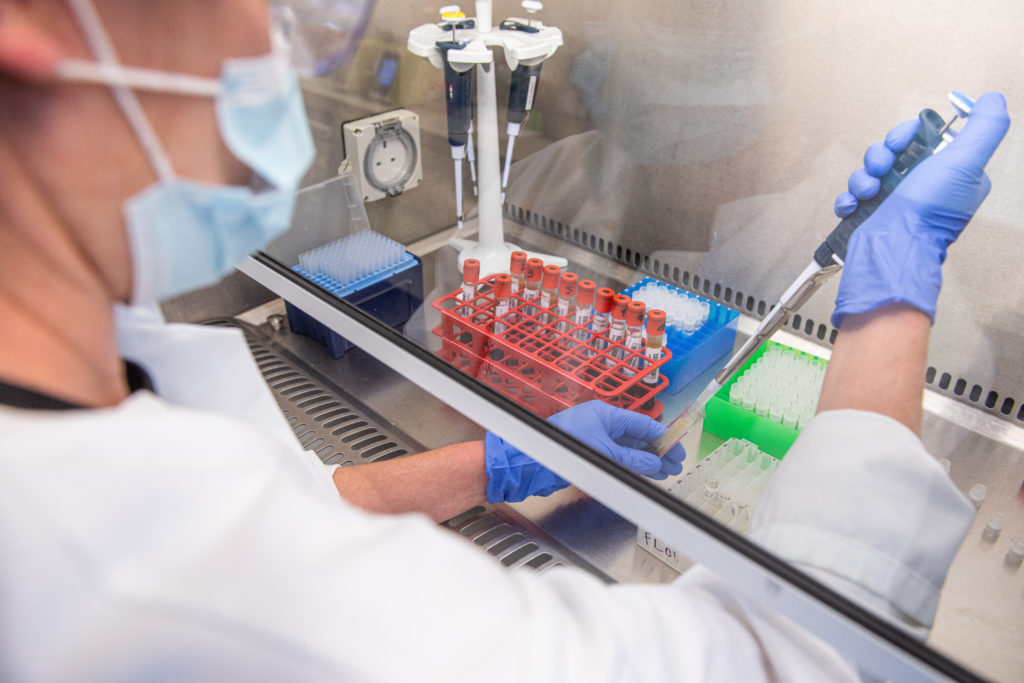The University of Oxford coronavirus vaccine team has launched the first study to assess the safety and immune responses in children and young adults of their ChAdOx1 nCoV-19 vaccine.

The study, which will be conducted with partner sites in London, Southampton and Bristol, builds on previous trials of the vaccine, which have shown that it is safe, produces strong immune system responses and has high efficacy in all adults.
This new trial, a single-blind, randomised phase II trial, will enrol 300 volunteers, with up to 240 of these volunteers receiving the ChAdOx1 nCoV-19 Oxford/AstraZeneca vaccine and the remainder a control meningitis vaccine.
It will assess if children and young adults aged 6-17 years make a good immune response with the ChAdOx1 nCoV-19 vaccine. The first vaccinations are expected during February.
Andrew Pollard, Professor of Paediatric Infection and Immunity, and Chief Investigator on the Oxford vaccine trial, said: “While most children are relatively unaffected by coronavirus and are unlikely to become unwell with the infection, it is important to establish the safety and immune response to the vaccine in children and young people as some children may benefit from vaccination. These new trials will extend our understanding of control of SARS-CoV2 to younger age groups.”
The Oxford BRC provided crucial funding to get the trial up and running and then helped to fund an evaluation of the safety of the vaccine. Prof Pollard and Prof Sarah Gilbert, another leading member of the Oxford COVID-19 Vaccine team, are supported by the Oxford BRC’s Vaccines Theme.
Rinn Song, Paediatrician and Clinician-Scientist with the Oxford Vaccine Group, said: “The COVID-19 pandemic has had a profound negative impact on the education, social development and emotional well-being of children and adolescents, beyond illness and rare severe disease presentations.
“It is therefore important to collect data on the safety and the immune response to our coronavirus vaccine in these age groups, so that they could potentially benefit from inclusion in vaccination programmes in the near future.”
Grace Li, Paediatric Clinical Research Fellow, Oxford Vaccine Group, said: “This study will play an important role in helping to protect children in the future. We’ve already seen that the vaccine is safe and effective in adults, and our understanding of how children are affected by the coronavirus continues to evolve.”
Variants
Last week, the trial team announced that the vaccine remains effective against the so-called ‘Kent’ variant of the disease, which is currently circulating in the UK to previously circulating variants.
In a pre-print paper, they describe recent analysis showing that vaccination with ChAdOx1 nCoV-19 results in a reduction in the duration of shedding and viral load, which may translate into a reduced transmission of the disease.
They were the first findings regarding the efficacy of the Oxford vaccine against new variants. Vaccine researchers are already looking at ways to modify the existing vaccines quickly and simply to protect against new variants.
Prof Pollard said: “Data from our trials of the ChAdOx1 vaccine in the United Kingdom indicate that the vaccine not only protects against the original pandemic virus, but also protects against the novel variant, B.1.1.7, which caused the surge in disease from the end of 2020 across the UK.”
Prof Gilbert added: “All viruses accumulate mutations over time, and for influenza vaccines there is a well-known process of global viral surveillance, and selection of strains for an annual update of the vaccines.’
“Coronaviruses are less prone to mutation than influenza viruses, but we have always expected that as the pandemic continues, new variants will begin to become dominant amongst the viruses that are circulating and that eventually a new version of the vaccine, with an updated spike protein, would be required to maintain vaccine efficacy at the highest level possible.
“We are working with AstraZeneca to optimise the pipeline required for a strain change should one become necessary. This is the same issue that is faced by all of the vaccine developers, and we will continue to monitor the emergence of new variants that arise in readiness for a future strain change.”
In another announcement, the Oxford vaccine team said that the two-dose regimen of the vaccine provides minimal protection against mild-moderate COVID-19 infection from the B.1.351 coronavirus variant first identified in South Africa.